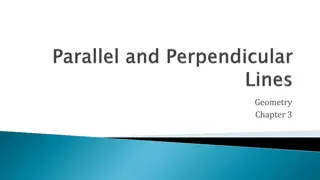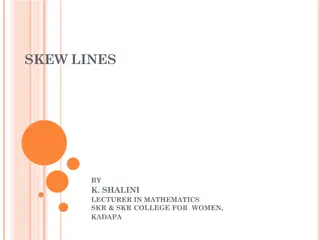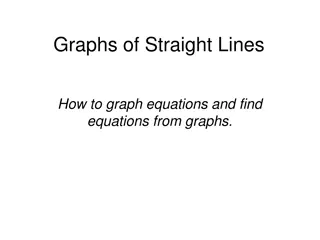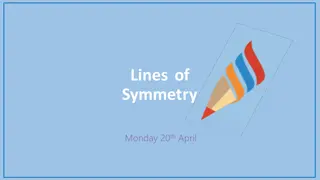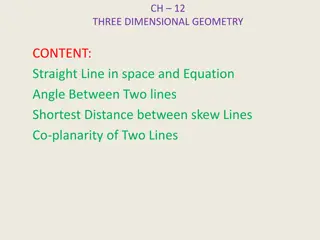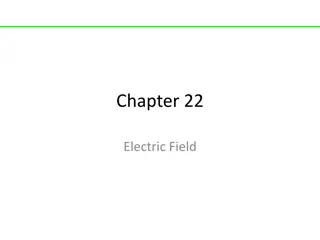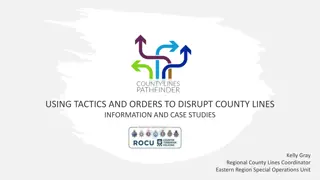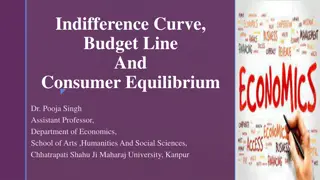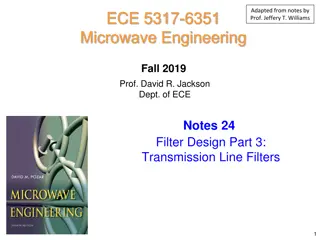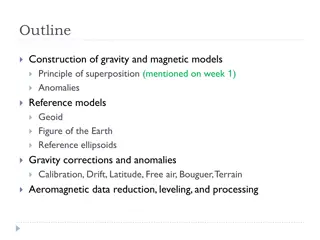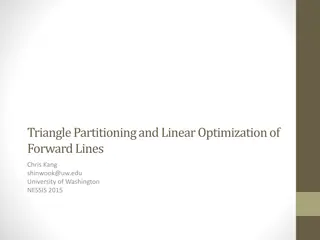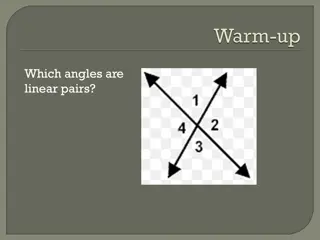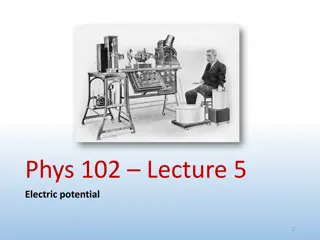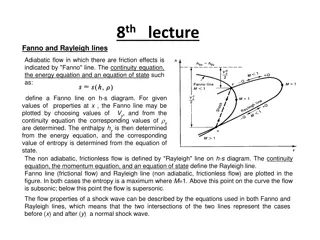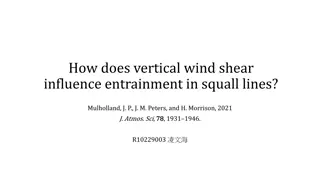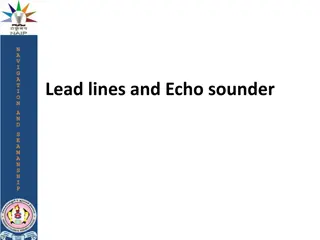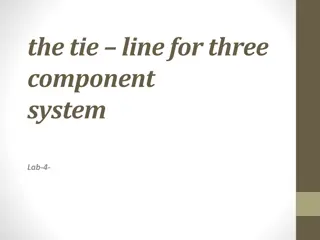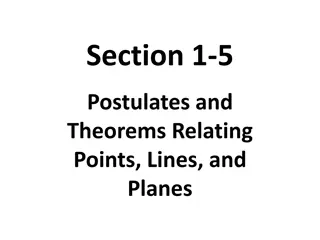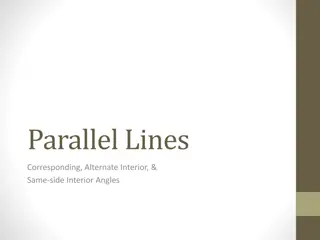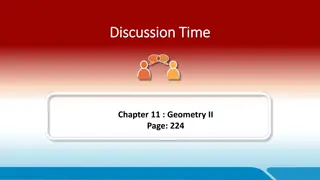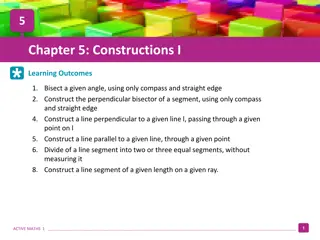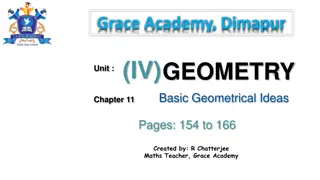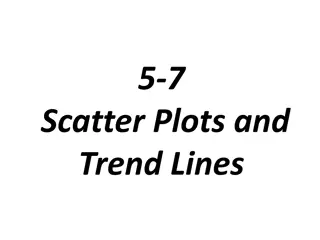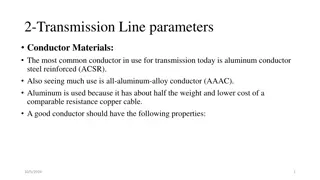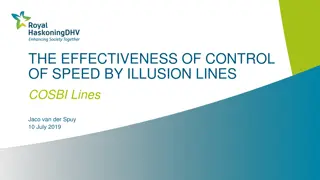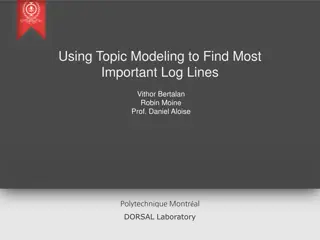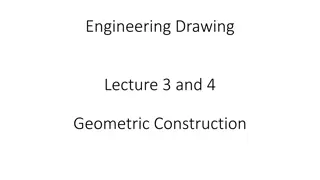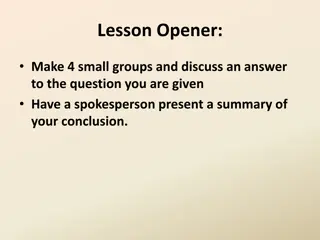Overview of the Norwegian Railway Sector
The Norwegian railway sector underwent significant reforms in 2015 under the Ministry of Transport and Communications, with strategic governance by the government. The sector is managed by various bodies like the Norwegian Railway Directorate, Norwegian Railway Authority, and Accident Investigation
0 views • 42 slides
Lead and Copper Rule Revisions - Important Requirements and Deadlines
Water systems must prepare an inventory of service lines to identify those made of lead or unknown materials, with compliance deadlines set for different types of water systems. The inclusion of all service lines and visual inspections are key aspects of the new regulations, aiming to improve water
3 views • 32 slides
Understanding Memory Units in Computing
Memory units are essential components in computing devices that store binary information in words, allowing for fast and efficient data retrieval. They consist of storage cells, circuits, and address selection lines for communication. Random Access Memory (RAM) enables quick access to data, while Re
6 views • 15 slides
You Can't Buy Happiness, But You Can Buy Crave
A leading F&B company, known for its indulgent treats, faced a dilemma. Consumer preferences were shifting towards healthier snacking options, impacting their \ntraditional product lines. Our research uncovered surprising consumer preferences that led to a 25% sales increase with new product lines.
5 views • 8 slides
Comprehensive Overview of Geometry Chapter 3 Concepts
Dive into the fundamentals of lines, planes, parallelism, and angles in Geometry Chapter 3. Explore topics such as identifying lines and planes, understanding parallel and perpendicular lines, and recognizing angle relationships formed by transversals. Discover the properties of parallel lines, tran
0 views • 42 slides
Understanding Skew Lines and Planes in 3D Geometry
Explore the concepts of skew lines, parallel lines, perpendicular lines, and planes in 3D geometry through real-life examples and equations. Learn about the shortest distance between skew lines and solve problems related to their applications.
1 views • 46 slides
Understanding Graphs of Straight Lines and Equations
Learn how to graph equations and find equations from graphs of straight lines. Explore tables of values, plotting points on a coordinate plane, drawing lines through points, and identifying relationships between graphs and algebraic expressions. Discover the gradient-intercept form of a straight lin
0 views • 14 slides
Geometry Learning - Lines of Symmetry Activities
Explore various activities focused on lines of symmetry in shapes. Engage in identifying symmetrical shapes, finding lines of symmetry through folding, sorting shapes based on symmetrical properties, drawing lines of symmetry, and reasoning about symmetrical shapes. Enhance your understanding of sym
0 views • 16 slides
Three-Dimensional Geometry: Direction Cosines and Angles
Understanding direction cosines and angles in three-dimensional geometry is crucial for determining the orientation of lines in space. By calculating direction cosines, we can find the angles a line makes with the positive directions of the X, Y, and Z axes. This knowledge helps in various geometric
0 views • 18 slides
Understanding Electric Field Lines and Charges
Electric field lines provide a visual representation of the electric field around charges. They show the direction of the electric field and help understand the intensity of the field at different points. Field lines never cross each other and the tangent at any point on a line gives the field direc
0 views • 40 slides
Understanding Parallel and Perpendicular Lines
Students will learn to identify and write equations of parallel and perpendicular lines by understanding the relationship between slopes. Parallel lines have the same slope, while perpendicular lines intersect to form right angles. Through examples and explanations, students will gain the skills to
0 views • 12 slides
Using Tactics and Orders to Disrupt County Lines: Case Studies and Strategies
Exploring the approach of using tactics and orders to disrupt county lines, this content outlines the Drug Dealing Telecommunications Restriction Order (DDTRO) process and its impact on drug supply chains. Case studies like the successful DDTRO conducted by the North West Regional Organised Crime Un
0 views • 21 slides
Understanding Indifference Curve, Budget Line, and Consumer Equilibrium
Indifference curves and budget lines are essential concepts in economics to analyze consumer behavior and preferences. Dr. Pooja Singh, an Assistant Professor at Chhatrapati Shahu Ji Maharaj University, Kanpur, explains how indifference curves represent different combinations of goods that offer the
0 views • 9 slides
Microwave Filter Design Using Transmission Lines
Explore the design of microwave filters using transmission lines, starting with lumped-element designs and transitioning to transmission line approximations. Learn how to realize series inductors and shunt capacitors using narrow and wide sections of microstrip lines. Discover techniques such as Ric
0 views • 28 slides
Understanding Gravity and Magnetic Models in Geophysics
Construction of gravity and magnetic models involves principles of superposition to isolate anomalies, reference ellipsoids, geoid, and various corrections like drift, latitude, free air, Bouguer, and terrain corrections. Gravity anomalies are determined by subtracting multiple factors from observed
0 views • 15 slides
Understanding Regression Lines for Predicting English Scores
Learn how to utilize regression lines to predict English scores based on math scores, recognize the dangers of extrapolation, calculate and interpret residuals, and understand the significance of slope and y-intercept in regression analysis. Explore the process of making predictions using regression
0 views • 34 slides
Overview of Damping Ring and Transfer Lines for FCC-ee Pre-Injector Complex
The Damping Ring and Transfer Lines play a crucial role in the FCC-ee Pre-Injector Complex, aiming to damp the emittance of both beams and operate the damping ring at higher energy levels. Coordinated by experts like C. Milardi and A. De Santis, the project includes designs for the Damping Ring, Tra
0 views • 29 slides
Triangle Partitioning and Linear Optimization in Hockey Line Analysis
In this presentation, the speaker discusses the use of triangle partitioning and linear optimization techniques to analyze hockey team lines. The goal is to find chemistry between players, allocate ice time effectively, and match up against opposing lines for a better chance of winning games. Tradit
0 views • 16 slides
Exploring Buffon's Needle Experiment for Estimating Constants
Buffon's Needle experiment involves dropping sticks on a surface with parallel lines to estimate a mathematical constant. By calculating the probability of the sticks crossing the lines at various distances, comparing results using the Buffon theorem, and determining inaccuracies, the experiment aim
0 views • 16 slides
Buffon's Needle Experiment: Probability Estimation through Sticks Crossing Lines
Buffon's Needle Experiment involves dropping sticks on parallel lines to estimate a mathematical constant through the frequency of the sticks crossing the lines. The experiment explores the theoretical introduction, probability calculations, equipment setup, and hypotheses related to accuracy and pr
0 views • 26 slides
Understanding Angle Relationships with Parallel Lines
Explore the concept of angle relationships created by intersecting lines and transversals. Learn about linear pairs, congruent angles, supplementary angles, alternate interior and exterior angles, corresponding angles, and more. Engage in activities, quizzes, and worksheet assignments to deepen your
0 views • 9 slides
Understanding Warm Lines: A Vital Support System Beyond Crisis Intervention
In the realm of mental health support, warm lines serve as invaluable resources beyond crisis intervention hotlines. Originating in the late 1950s, these lines cater to individuals facing non-crisis challenges such as depression, loneliness, and relationship issues. Project Return Peer Support Netwo
0 views • 27 slides
Methods of Solving Electrostatics Problems in Conductor Systems
Understanding problem-solving methods in electrostatics, including the use of images and fictitious point charges to analyze interactions between conductors and charges. Exploring scenarios with semi-infinite and finite conductors, grounded and insulated spheres, and the concept of equipotential sur
0 views • 36 slides
Understanding Electric Potential in Physics
Today's lecture covers the concept of electric potential, superposition principle, representation with equipotential lines, relation with electric field, and applications like Electrocardiogram (ECG). It explains the definition of electric potential, its scalar nature, and calculation examples invol
0 views • 22 slides
Understanding Fanno and Rayleigh Lines in Adiabatic Flow
Fanno and Rayleigh lines on the h-s diagram help in analyzing adiabatic flow with friction effects. The Fanno line represents frictional flow, while the Rayleigh line signifies non-adiabatic, frictionless flow. These lines aid in plotting flow properties and understanding phenomena like shock waves
0 views • 6 slides
Influence of Vertical Wind Shear on Entrainment in Squall Lines
The strength and direction of low-level (LL) and upper-level (UL) wind shear influence the properties of squall line updrafts, with stronger shear environments fostering wider updrafts that are less susceptible to entrainment-driven dilution. The relative influences of LL and UL shear on this relati
0 views • 40 slides
Understanding Lead Lines and Echo Sounders for Depth Measurement
Dive into the world of lead lines and echo sounders for depth measurement. Discover the ancient navigational instrument, the construction of lead lines, and the markings used for different depths. Learn about the traditional use of lead lines by fishermen and the importance of these tools in shallow
0 views • 23 slides
Understanding Tie Lines in Ternary Systems
Ternary systems involve three components where partial miscibility can lead to phase separation. Adding alcohol to a benzene-water mixture can promote miscibility by acting as an intermediary solvent. By breaking cohesive bonds and increasing heat, the system can transition to a single phase. The pr
0 views • 15 slides
Geometric Postulates and Theorems Relating Points, Lines, and Planes
This section introduces the postulates and theorems related to points, lines, and planes in geometry. It covers basic assumptions, postulates about lines and planes, and theorems about intersections. The concept of "exactly one" and "one and only one" is emphasized, highlighting the unique relations
0 views • 10 slides
Understanding Angles and Lines in Geometry
Explore the concepts of parallel and skew lines, parallel planes, transversals, and angle relationships such as corresponding, alternate interior, and same-side interior angles. Learn to classify pairs of angles as either alternate interior, same-side interior, or corresponding. Practice identifying
0 views • 25 slides
Geometry II - Understanding Lines and Arcs in a Circle
This content discusses concepts related to geometry, focusing on lines and arcs within a circle. It explores the properties of lines AB and APB, measures of angles AOB and APB, as well as the shapes formed within the circle. The discussion provides a clear understanding of the terminology and geomet
0 views • 4 slides
Geometric Constructions: Mastering Compass and Straight Edge Techniques
Explore the art of geometric constructions using only a compass and straight edge. Learn to bisect angles, construct perpendicular bisectors, draw lines perpendicular to given lines, create parallel lines, divide line segments equally, and more. Equip yourself with the necessary skills and technique
0 views • 11 slides
Understanding Basic Geometrical Ideas in Geometry
Basic Geometrical Ideas in Geometry cover the fundamental concepts of points, lines, and planes. Points are described as having location but no size, lines are infinite sets of points, and collinearity is discussed. The importance of straightness in lines is assumed but not defined. Symbols and nota
0 views • 45 slides
Understanding Scatter Plots and Trend Lines for Data Analysis
Scatter plots display data as ordered pairs to show relationships, while trend lines indicate correlation. Learn how to create scatter plots, interpret correlations, draw trend lines, and make predictions. Explore causation versus correlation and practice identifying causal relationships in various
0 views • 8 slides
Types of Conductors in Transmission Lines
Aluminum conductors, such as AAC, AAAC, ACSR, and ACAR, are commonly used in transmission lines due to their high conductivity, tensile strength, light weight, and resistance to corrosion. AAC is known for its good conductivity but limited strength, while AAAC offers better mechanical strength and c
0 views • 17 slides
Mapping QTL and Selection of Soybean Lines with High Essential Amino Acids
Soybean (Glycine max L.) plays a crucial role as a crop in North Carolina, especially for its essential amino acids content critical for human and animal nutrition. This study aims to identify quantitative trait loci (QTL) for essential amino acids in soybean seeds using a genetic map from the Forre
0 views • 4 slides
Enhancing Speed Control with COSBI Lines: A Study by Jaco van der Spuy
Explore the effectiveness of controlling speed through illusion lines known as COSBI Lines, as investigated by Jaco van der Spuy in a recent study. The presentation delves into the purpose, introduction, literature study, case study, results, and questions surrounding this innovative method. Discove
0 views • 27 slides
Utilizing Topic Modeling for Identifying Critical Log Lines in Research
By employing Topic Modeling, Vithor Bertalan, Robin Moine, and Prof. Daniel Aloise from Polytechnique Montréal's DORSAL Laboratory aim to extract essential log lines from a log parsing research. The process involves building a log parser, identifying important log lines and symptoms, and establishi
0 views • 18 slides
Geometric Construction in Engineering Drawing: Lecture Highlights
Geometric construction involves creating primitive geometric forms like points, lines, and planes to define objects in space. The lecture covers the basics of 2D geometric primitives, such as points, lines, circles, and arcs. It explains the significance of points and lines in technical drawings and
0 views • 18 slides
Understanding Gravity and Inverse Square Relationships in Physics
Explore the concepts of gravitational field, potential, geostationary orbits, escape velocity, and the inverse square relationship in Newton's Law of Universal Gravitation. Discover how mass and distance affect gravitational force and learn about nonuniform gravitational fields and equipotential lin
0 views • 22 slides




